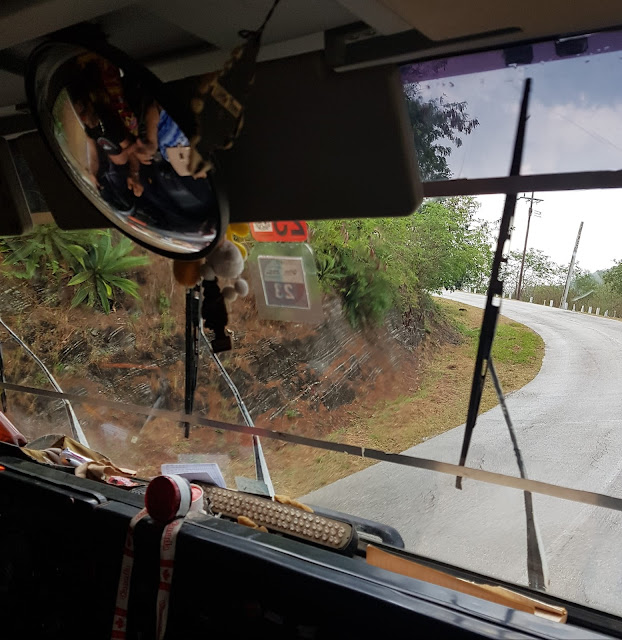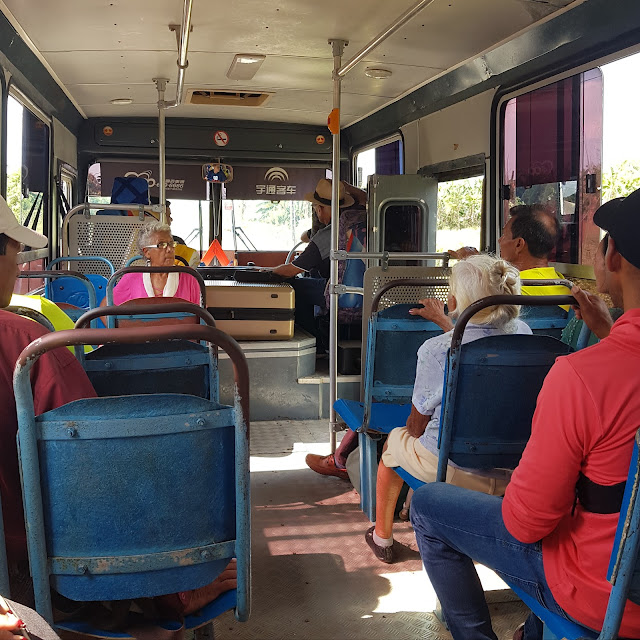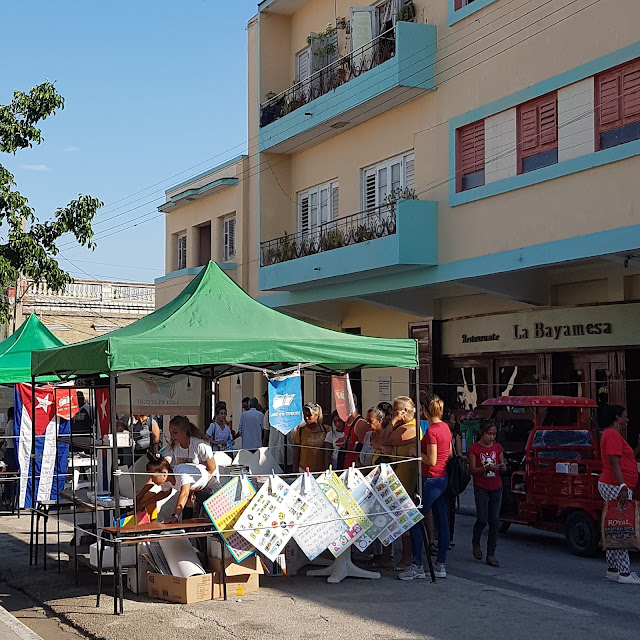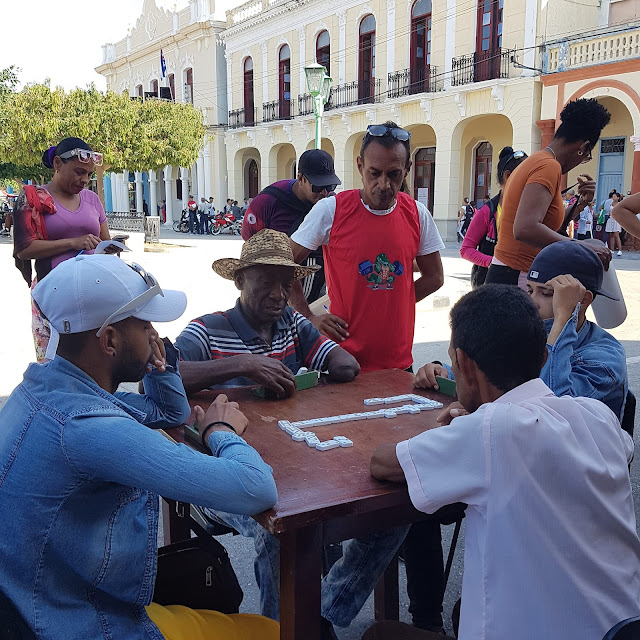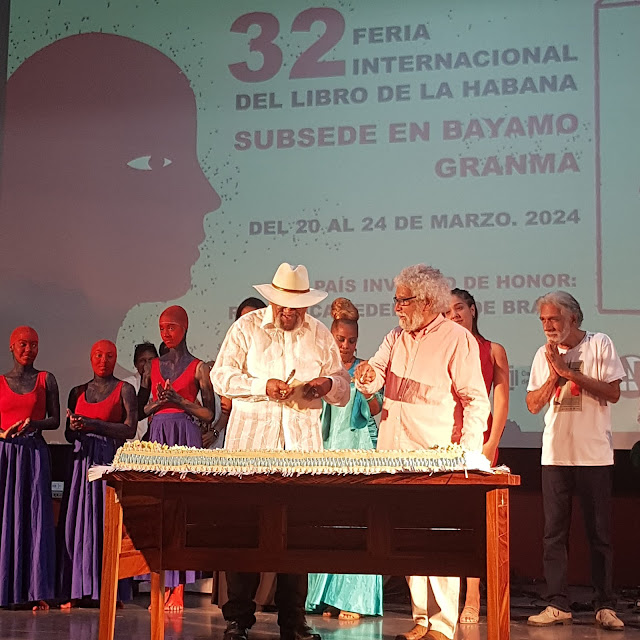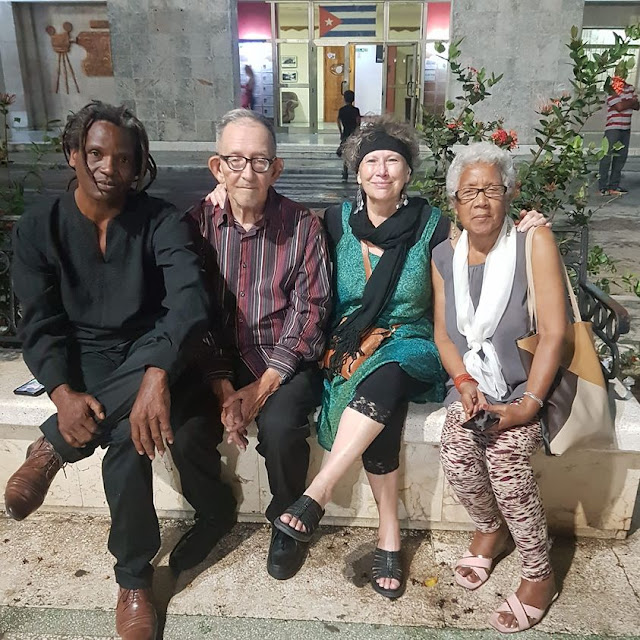After a week at the resort in Cuba, I moved out (as planned!)
At the end of a delightful and restful week at the beautiful Marea del Portillo Resort, I moved off the resort grounds. One might say I went rogue! However, it wasn’t a wild escapade; it was a planned change in my lifestyle. Of course, planning in Cuba requires flexibility and a readiness to adapt to changes.
During my March trip, outside of the resort, I spent two weeks at a friend’s house in Pilón. Her son was away at university, so I occupied his room while my host and other friends generously took care of me. The small town, located less than 15 km from the resort, offers a stark contrast to the tourist enclave. Frequent power outages presented the biggest challenge, continuing to be a common issue throughout most of the country. The resort benefits from a more stable supply, being on a different part of the local electrical grid.
In Pilón, power interruptions typically lasted about 5-6 hours at a time, but these outages were unpredictable and often exasperating. At times, the electricity would be out for as long as 10-12 hours. Overall, during my two weeks there, the power was off more often than it was on.
The unpredictability was frustrating and complicated daily life. Many everyday tasks rely on electricity, from charging devices to cooking meals. There’s constant anxiety about food spoiling in the refrigerator or freezer. It’s also difficult to sleep when the power is out, the heat rises, and the mosquitoes become relentless.
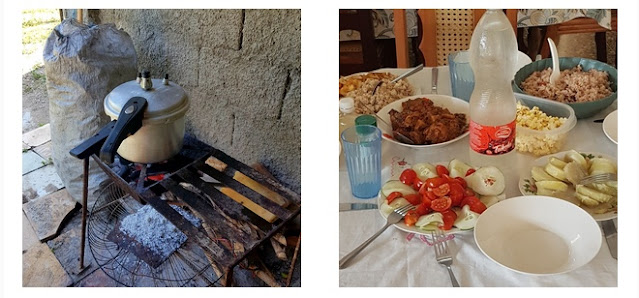
Food prices have risen significantly, and availability is often unpredictable. However, during my stay in Pilón, I was fortunate enough to enjoy fresh lettuce from a friend who grows it—he refuses to sell it to the resort, as explained in Part 1 of my trip report. I also savored an array of seafood, such as fish, lobster, and cobo (a type of shellfish also known as conch), alongside some chicken and meat, including what I had brought from Canada. Pork, once a staple in Cuban households, has become a rare treat.
People have become resourceful in their cooking. My host often describes herself as someone who “invents” solutions to culinary challenges, and she is very talented at it! Due to the erratic electricity and the lack of gas for cooking, she occasionally used alcohol-based fuel. Many people rely on wood or charcoal for cooking, but charcoal has become rather costly.
Recently, I read that Cuban pork production plummeted by 91% in recent years, decreasing from 149,400 tons in 2018 to only 13,300 tons in 2023. Similarly, rice production dropped from 273,800 tons to just 27,900 tons—a staggering 90% decline. This means that a greater quantity of rice must now be imported, an essential item in the national diet, which the government struggles to pay for due to financial constraints.
Despite these challenges, the people carry on, finding creative solutions as best they can. Although they are not originally from Cuba, I was incredibly grateful for inventions like rechargeable fans, lights, and battery packs! If you’re planning a trip to Cuba, I encourage you to bring solar lights and rechargeable fans, along with basic medical supplies (especially acetaminophen and ibuprofen) and any types of protein you can manage to pack. Cured and canned meats follow the current customs regulations. To minimize weight, I also brought dehydrated tuna.
A few times, I was able to treat my friends to meals at private restaurants such as “Kocha’s Place,” located just a few blocks from Pilón’s main square. You can find it on Google Maps. Since Kocha had provided his family’s café/bar with a generator, they were able to serve hot meals even during power outages—as long as they had fuel, of course.
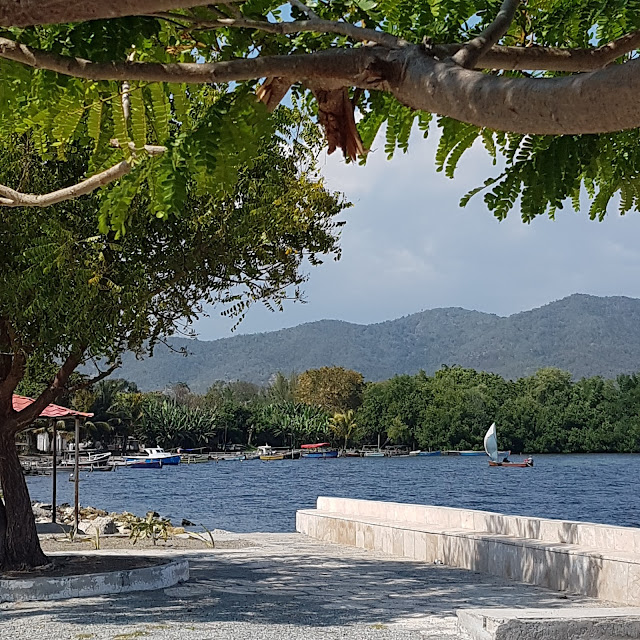
Fuel shortages present a significant issue in Cuba. Most of the country’s electricity is generated from fuel, with solar and wind power being minimal. Gas and diesel fuel are critically important for transportation, which often disrupts both private and public transit. More residents in Pilón seem to have switched to electric motorcycles, scooters, and e-bikes, despite the challenges in recharging them. Horse-drawn carts are also quite common these days! I found myself biking frequently; it’s part of my Cuban fitness plan.
For my final week in Cuba, I aimed to attend the annual book fair in Bayamo, located about 145 km from Pilón. A small bus was arranged for attendees coming from distant towns, and since I was listed as a guest of a local writer, I was optimistic about transportation. However, the journey was not without complications!
On the day we were meant to meet our ‘Diana’—the name of that particular type of small bus—I loaded my luggage into a horse cart and headed to the meeting spot near the town’s only gas station at the designated time of 8 a.m. I found a comfortable rock to sit on beside the road and waited. My travel companion arrived fashionably late, as he had to walk from his home further away, carrying several bags. We began to wait…and wait…and wait.
As the morning melted into afternoon, ZZ Top’s classic “Waitin’ for the Bus” played repeatedly in my mind. We eventually received word that our bus was on its way from Bayamo, but it was making slow progress due to numerous stops. By then, we had moved to a bench in a nearby yard where a bathroom was also available. That’s when the rain began to fall.
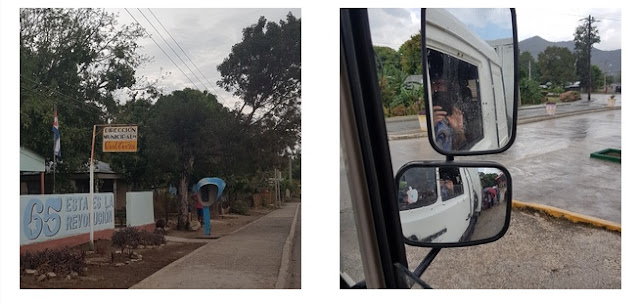
Knowing the bus’s route, we quickly devised a plan for where to meet. Just as the rain began to pour down heavier, we hopped onto a truck-bus that would take us over the mountain to Sevilla, where the Diana would be waiting. Fortunately, this truck had a covered back, so we didn’t get completely drenched! Another woman and I were seated comfortably in the cab with the driver. By the time we arrived in Sevilla, the rain had finally stopped.
Once on the Diana bus with the other authors, we prepared for a long ride, complicated by the requirement to stop and pick up anyone needing transportation at the bus stops. This is typical in Cuba; if a vehicle isn’t full, the doors are opened for passengers awaiting a ride.
Eventually, we reached Bayamo and pulled into a gas station, but after refueling, Diana remained stuck. Another issue arose—the location of my casa particular (Cuban B&B) was not suited for bus traffic. Little Diana was too big to maneuver the narrow street where I would be staying. After some discussion, my friend and I agreed to get off at the nearest intersection and carry our luggage the half-block to the casa. Thank goodness for suitcases with sturdy wheels!
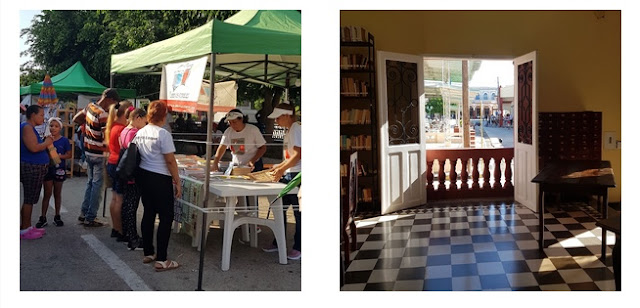
All in all, the journey from Pilón to our destination took about 12 hours. We missed the book fair’s opening ceremony, and I was too tired to attend the evening cocktail party; all I wanted was a hot shower and something to eat. A tin of meat and some crackers provided the sustenance I needed, but the shower was more refreshing than any meal!
During my stay in Pilón, I was unable to take a long, hot shower due to the electricity issues. My friend’s apartment’s primary water tank is on the roof, and the municipal water supply is only turned on every three days. Unfortunately, for the entire two weeks I was there, it seemed impossible to have both water and electricity at the same time. As a result, we were forced to ration water, not knowing how much remained in the rooftop tank.
On the day of my departure, my friend finally had both water and power simultaneously, which meant she could use her electric pump to refill the tank. I was relieved to know that she could finally do laundry, enjoy a longer shower, and not worry so much about resources.
Once settled in Bayamo, everything went remarkably smoothly. The casa was conveniently located near the center of town, making it easy to walk to most of the main book fair activities. Moreover, the electricity supply in that area was more stable, with hardly a flicker throughout that week. Enjoying reliable hot showers was a treat, and I loved spending time with the literary community in Granma while exploring the province’s capital.
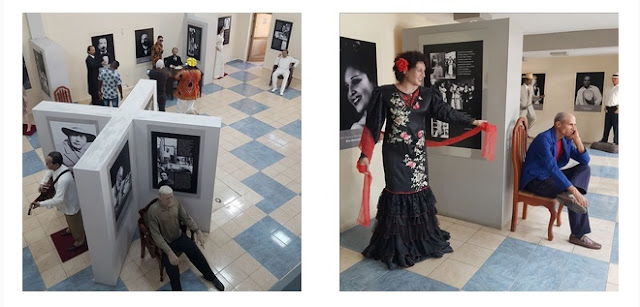
I have visited the book fair a couple of times, but I usually haven’t had the chance to sightsee. This year, I decided to stay in Bayamo a few days after the fair, as it made more logistical sense to head directly to Holguin for my return flight instead of taking a slow bus back to Pilón and then spending extra on a taxi to the airport. If it helps situate you, Holguin’s airport is about an hour away from Bayamo, on the opposite side of Pilón.
With more leisure time during this trip, I finally managed to visit the wax museum, now relocated to the city’s charming pedestrian street. Believe it or not, this is the only wax museum in Cuba! Although the bird exhibit, which I remembered fondly from a previous visit, was undergoing renovations, the other displays had been updated and expanded. It is truly worth a visit if you find yourself in town.
While I could delve into Cuba’s challenges, I think it’s time to sign off. I’ve provided you with ample reading for now!
Keep smiling,
Jenny
BONUS PHOTOS!!!
